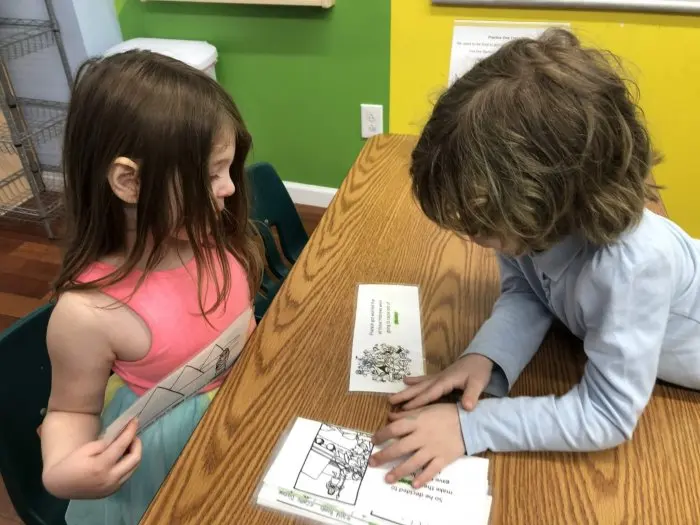
Why would the Torah repeat the same mitzvah (commandment) 36 times? That’s so many times! Maybe because it’s really important. Maybe because people are really bad at following it. Or both. Both is good. The Torah reminds us over and over again to treat gerim (strangers/others) well. Let’s find out what that has to do with the story from the Book of Rut and, moreover, what it has to do with us.
At the beginning of the story, Naomi, Elimelech, and their two sons go to Moav to survive a famine and are gerim in a strange land. Elimelech dies. Naomi’s sons marry Rut and Orpah, two women from Moav. After about 10 years, Both of Naomi’s sons die. Naomi finds out that there is food again in her hometown of Beitlechem. For Naomi, Moav is not her people and her place, and she wants to go home. She offers the opportunity for the same to her daughters-in-law. She doesn’t want them to be gerim like she was.
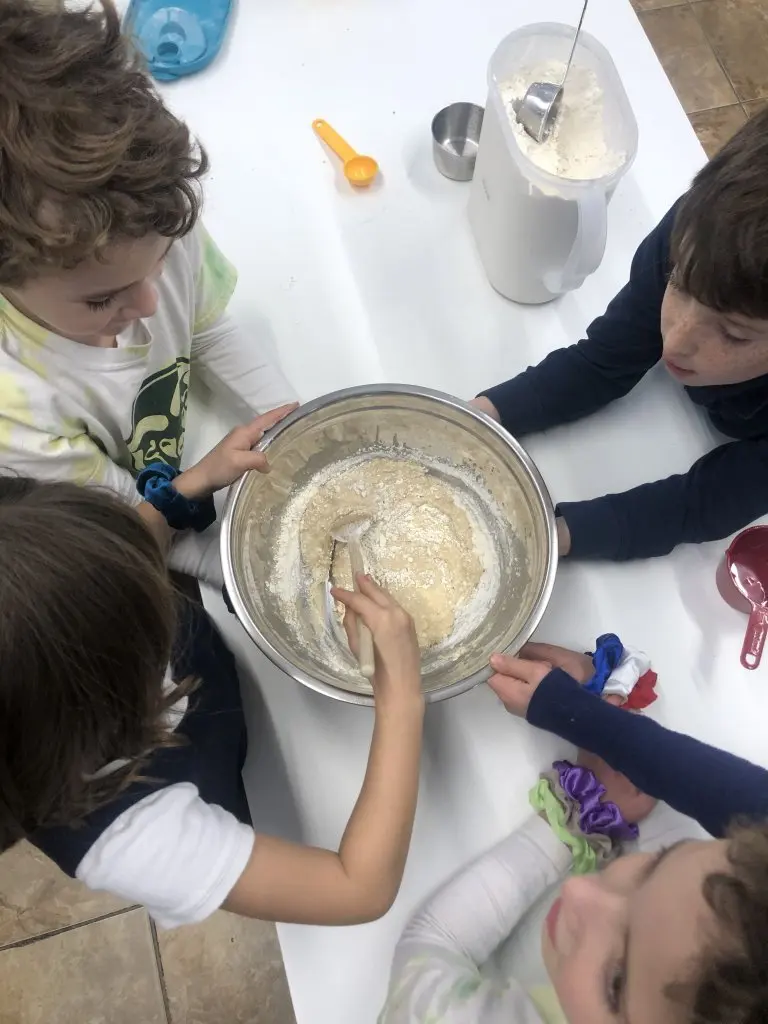
What does it feel like to be a ger?
- Hurt
- [thumbs down]
- Left out
- Alone or lonely
- Bad
- Cranky
- Scared
- Sad
How do you think people feel about gerim in their spaces?
- Mad because they’re new.
- Happy to have a visitor.
- Sad to have to meet new people (unless they’re my brother – he’s always excited to meet new people).
- Scared
- Worried
- Unknown– could be good or bad
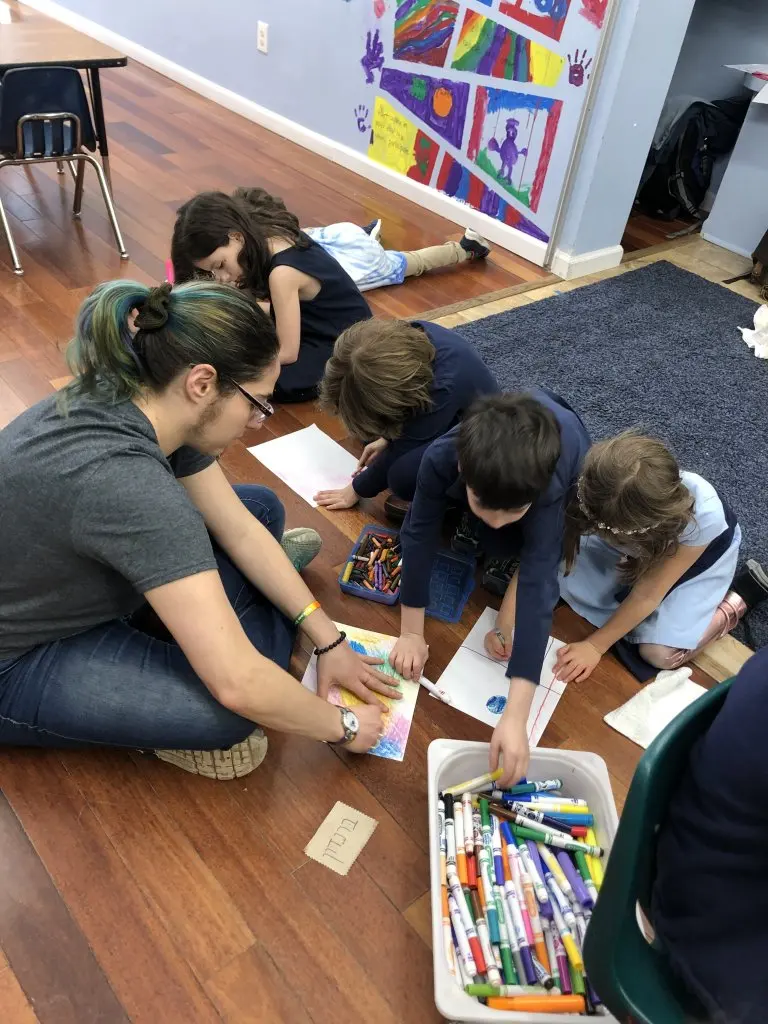
How can we be there for someone who might be a ger, for example, someone who is new to your class?
- Show them how great it is to be in a new school.
- Tell them what you miss [about a place that you left] so they don’t feel so bad.
- Show them where the bathrooms are so they don’t get lost.
- Sit with them at lunch and invite them to play at recess.
Naomi only spends some of this story as a ger, and then she is able to go home again. What does “home” mean to you?
- Home is where you were born.
- Home is what you miss when you’re away.
- Home is the place you think of first.
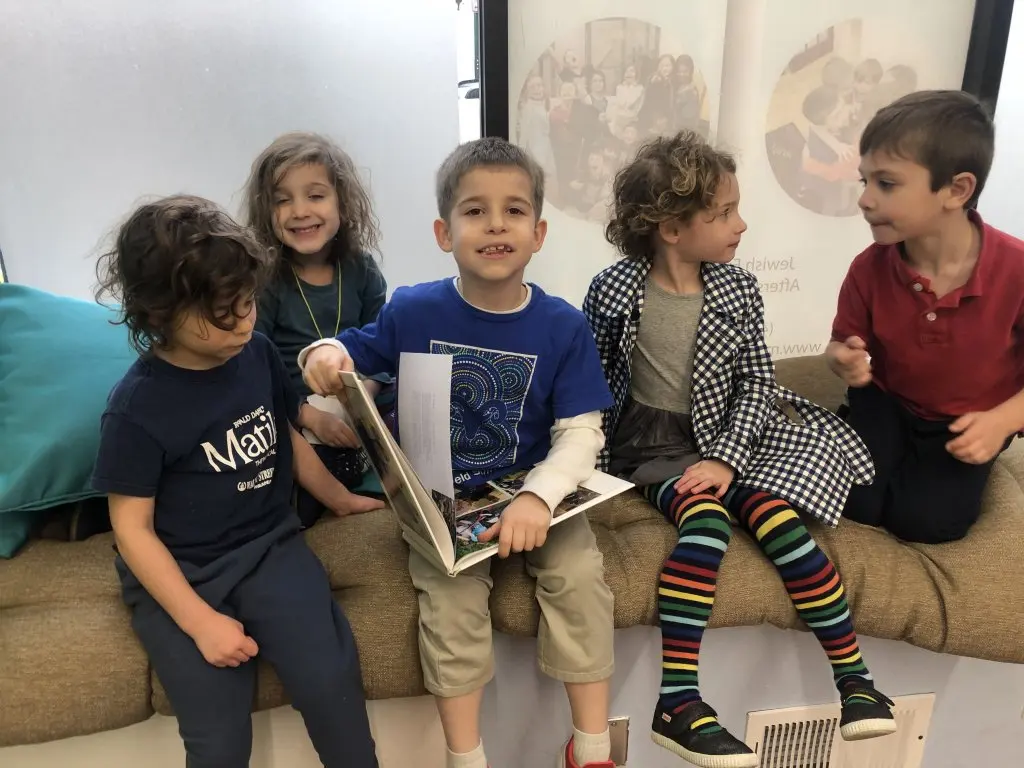
The Torah commands us to treat gerim like they are some of our people and to love them as we love ourselves. We explored that idea by reflecting on how we treat our family and friends differently:
- I know my family my whole life, but not my friends.
- I love my family sometimes.
- I don’t love my friends.
- Well, I love some people as friends.
- I play with my friends.
- I hug or cuddle my parents
Who might be gerim today right here in Philadelphia?
- Poor people
- Homeless people
- Immigrants
- My friend’s family from Mexico
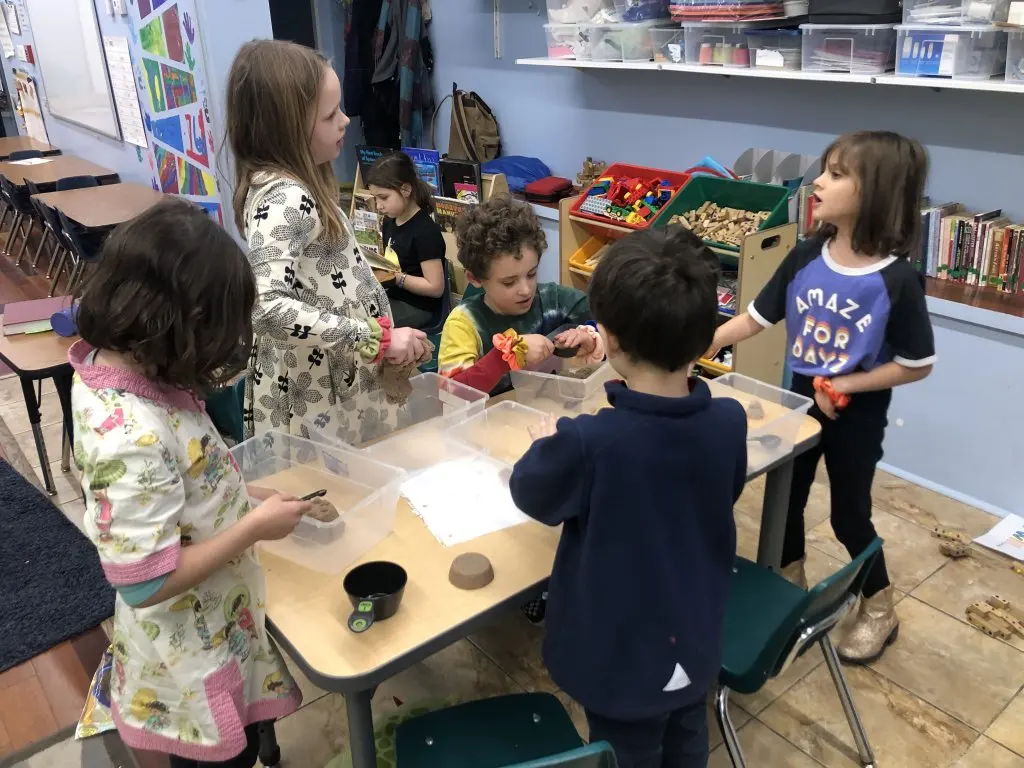
What support do you think refugees or other gerim need when they get to a new place?
- Friendliness
- Help
- New clothes
- Food and water
- A refrigerator
- An oven
- Money
Despite Naomi’s urging, Rut doesn’t want to leave her. She chooses to be a part of Naomi’s people and community for the rest of her life. “Where you go, I will go, where you dwell I will dwell, your people will be my people, and your God will be my God.” Rut chooses in that moment to be a ger in Naomi’s community. In the coming weeks we’ll continue to explore who the gerim are in our communities and how we can support them. Stay tuned!
